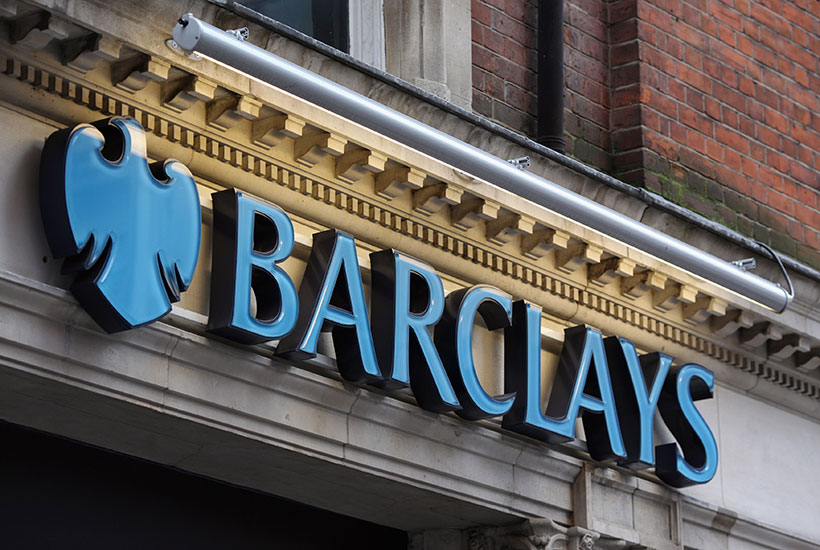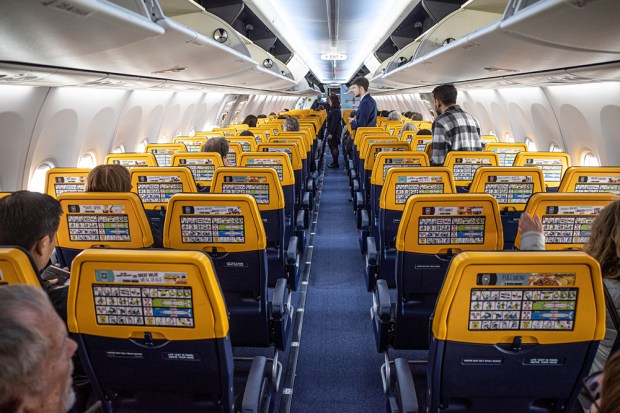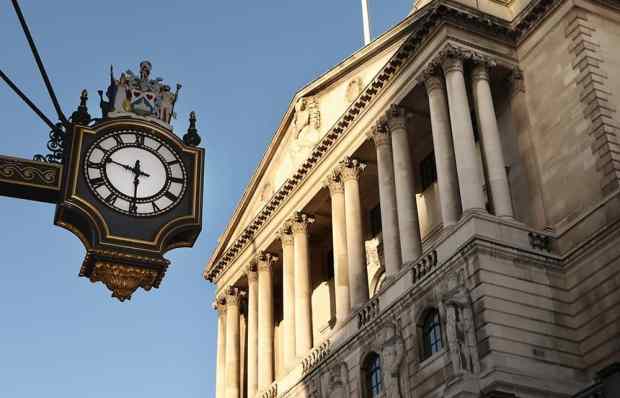After a dull interlude, the big banks in their annual results season look a bit more interesting again. First to report was Barclays, where pre-tax profits were up 25 per cent to £4.4 billion but attention focused, yet again, on Chief Executive Jes Staley, whose name rarely appears in print without ‘accident-prone’ attached to it. The trouble this time is his link to the late billionaire sex offender Jeffrey Epstein, who was Staley’s client at JP Morgan in his earlier career: under investigation is whether Staley was sufficiently ‘transparent’ with his board and regulators in declaring that relationship.
Staley survived previous embarrassments, including a £642,000 fine imposed by the Financial Conduct Authority for attempting to unmask a whistleblower, with the support of John McFarlane, the Barclays chairman who appointed him in 2015. But McFarlane has been succeeded by sharp-pencilled ex-Rothschilds director Nigel Higgins while the activist shareholder Edward Bramson is still agitating against Staley’s strategy, which includes maintaining a very expensive investment bank — and Barclays’ share price is still well below where it stood when Staley joined. One way or another, don’t be surprised to find him ‘stepping back’ in the manner of Prince Andrew.
Uncertainty and pain
Worse results from HSBC, which currently doesn’t have a chief executive at all — only caretaker Noel Quinn holding the fort since John Flint was ousted, after just 18 months, last year. HSBC’s board was said to be dithering over what to do next as it announced pre-tax profits down by a third and plans to cut 35,000, mostly in Europe and the US, of its 235,000 global workforce. We’re told that finding a new chief (or confirming Quinn) may take another ‘six to 12 months’.
A bank that used to bestride its Asian fiefdoms under the command of a corps of seasoned homegrown managers, HSBC now looks too big, too diffuse and too unsure of its own destiny. Lloyds, by contrast, looks more self-confident these days — but was also expected to show a profit fall after another painful hit from payment protection insurance payouts, following a deluge of claims ahead of last August’s deadline. Also under scrutiny is the pay of Chief Executive António Horta-Osório, in post since 2011, whose £6.3 million for 2018 rewarded him very amply for delivering Lloyds out of the bailout sin-bin; analysts think he should reap a smaller fortune in what’s likely to be his last year in the job. A ‘radical overhaul’ of executive pay throughout the bank is promised — but if that means lower salaries all round, I’ll believe it when I see it.
New era, new purpose
The big news from RBS is a change of group branding to NatWest — but the surprise is that the decision took so long. It’s been obvious for a decade that Royal Bank of Scotland could never shed the taint of Fred Goodwin’s global follies and was a name best confined (if kept at all) to its historic northern domain. The reputation of NatWest, by contrast, survived the 2008 crash — and for a long time I argued that demerger, shedding the Scottish bank altogether, would be better than merely swapping logotypes. But senior RBS people told me that splitting the crippled group was out of the question because it’s all but impossible to separate the computer systems of one part of a big bank from another — as was confirmed by the fiasco of TSB’s move from former owner Lloyds to Spanish acquiror Banco Sabadell. Nor were RBS folk amused by my reader competition to find them a fresh name: I declared the winner to be ‘Dogger Bank, evidently a reference to what goes on in dark car parks rather than to the blameless North Sea shallows’.
So ‘NatWest’ it is — heralding the debut of new Chief Executive Alison Rose and somewhat overshadowing the rest of her first statement, which declared that the group will henceforth be led by ‘a refreshed purpose’. We will ‘champion potential, helping people, families and businesses to thrive’, she says, by making ‘impact’ in the areas of ‘enterprise, learning and climate’. To which long-suffering investors and customers may retort: ‘You could start by improving the service and boosting the share price’ — but that would be to ignore the post-Davos zeitgeist of ‘cuddly capitalism’, which is all about marrying business and social objectives in pursuit of ‘sustainable returns’. I’m confident of progress for RBS-turned-NatWest in the sensible hands of Alison Rose, but I worry about the words ‘purpose’ and ‘impact’, which are being forced to carry more ethical baggage than the overladen roofrack of a cartoon Mini.
Lunch with the Chancellor
Many readers ask what’s happened to my restaurant tips lately — but don’t worry, I’m not on some extended Veganuary trip, it’s more a matter of lack of opportunity. I’d love to have told you about the cheese fondue at Davos’s mountain-top Schatzalp or the breakfast at Kaffee Klatsch, but for the umpteenth year running no one offered me a freebie to the World Economic Forum. Instead I huddle against the storms in Yorkshire pubs such as the welcoming Wellington Heifer at Ainderby Steeple — which I discovered a while ago when I lunched (on soup and sea bream) with a new local MP, Rishi Sunak, to discuss his idea of ‘free ports’ to boost growth in deprived areas.
Sunak has been my man to watch ever since: I wrote later that I found him ‘more engaging, more articulate and better equipped for a top Treasury role than his boss Sajid Javid’. Now Sunak has replaced Javid, a consultation has opened on the government’s aim to create ten free ports, and I suspect the new Chancellor won’t turn out anything like the Johnson-Cummings puppet the Westminster media think they have spotted. I wish him luck. Meanwhile, more restaurants soon and a cryptic message from my correspondent on the chairlift: ‘No one really eats in Davos anyway.’
Got something to add? Join the discussion and comment below.
Get 10 issues for just $10
Subscribe to The Spectator Australia today for the next 10 magazine issues, plus full online access, for just $10.
You might disagree with half of it, but you’ll enjoy reading all of it. Try your first month for free, then just $2 a week for the remainder of your first year.















Comments
Don't miss out
Join the conversation with other Spectator Australia readers. Subscribe to leave a comment.
SUBSCRIBEAlready a subscriber? Log in